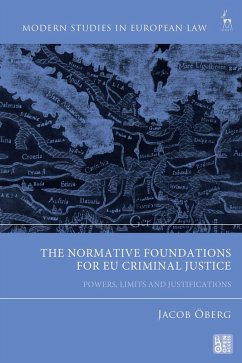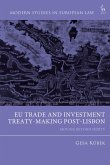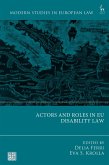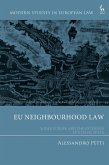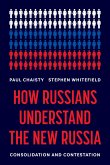Should the European Union regulate criminal justice? This open access book explores the question forensically, establishing whether a compelling normative justification for EU action in the field exists. It develops an integrated standard based on the perspectives of the effective allocation of regulatory authority between the EU and the Member States, representation-based political theories, and harm-based theories of criminal law. This is a work that will be welcomed not only by EU criminal law scholars, but also by practitioners, judges and policymakers.
Bitte wählen Sie Ihr Anliegen aus.
Rechnungen
Retourenschein anfordern
Bestellstatus
Storno

